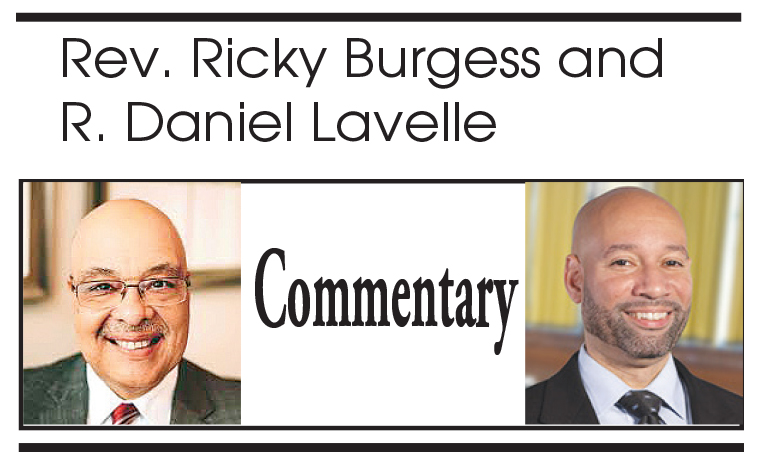by Rev. Ricky Burgess and R. Danielle Lavelle
African Americans are two and a half times more likely to be killed by a police officer than their White counterparts. This sad reality and a plethora of other data indicate that institutional racism and police violence against people of color constitute two interrelated public health crises in America. As such, there has been a national outcry, including Pittsburgh residents, regarding the unjust deaths of unarmed people of color such as George Floyd, Elijah McClain and Breonna Taylor. Theirs and other unwarranted deaths have spurred a national movement demanding the defunding and, in turn, reinvesting in programs that prevent poverty, crime, dysfunctional families, social alienation and other social ills for which police officers are not trained to address.
Recognizing the above complex problems, leaders in 19 U.S. cities have begun to cut law enforcement budgets and/or reallocate funds, e.g., [1] the Baltimore City Council approved a $22.4 million budget cut for the police department; [2] Portland, Oregon, cut $15 million from its police budget; [3] Los Angeles, California, cut the LAPD Budget by $150 million; and [4] Washington, D.C. slashed $15 million from the Metropolitan Police. It is likely that other cities will take such constructive actions.
Given the extent of the current “defund the police” and reinvestment initiatives, it is critically important that we not only acknowledge the voices of those marching in the streets but also provide a legislative platform for them to directly engage in the governance and policing of our city. Such a platform was advanced by criminal justice experts Seth W. Stoughton, Jeffrey J. Noble, and Geoffrey P. Alpert in an Atlantic article entitled, “How to Actually Fix America’s Police.” Therein, they suggest various reforms and strategies federal, state and local government should implement.
Recently, the City of Pittsburgh approved six pieces of legislation designed to substantively address the matter of Pittsburgh police reform. Those six significant pieces of legislation include: [1] Establishing a Hiring Freeze in the Bureau of Police; [2] Banning the purchase of surplus U.S. military equipment and weapons; [3] Requiring police officers to step in and stop other police officers from using illegal or unnecessary force or any other violation of a person’s constitutional right; [4] Establishing STOP the Violence Fund: violence prevention social service programs; [5] Banning chokeholds from being used by the Pittsburgh Police; and [6] Allowing Pittsburgh voters to strengthen the powers of the Civilian Review Board.
As opposed to an “attack” on our police department, it is very important to note that “defunding police” consists of legislative reforms that build on the programs and reforms designed by the Pittsburgh Police Department in partnership with community leaders and City Council. Those foundational and progressive programs include the Pittsburgh Initiative to Reduce Crime (now called the Group Violence Initiative), the Maryland Lethality Assessment Model, and the National Initiative to Build Community Trust. Of special importance is the fact that these programs have produced an historic reduction in crime, and led to changes and upgrades to the department including: [1] online department standard operating procedure; [2] annual reports; [3] ShotSpotter, the gunshot detection system; and [4] training in domestic violence prevention, implicit bias, procedure justice and racial reconciliation training. With these programs, the Pittsburgh Police Department is rapidly becoming one of the best trained police departments in the nation.
As we continue to address the systemic public health issues we face, it must be understood that the real problem we face is not police but rather what transpires when policing is part of an unjust, systemic racism-fed criminal justice system which disproportionately arrests, prosecutes, convicts, incarcerates and recidivates African Americans. As Michele Alexander wrote in a New York Times Op-Ed, the resistance to change emanates from the fact that “too many citizens prefer to cling to brutal and unjust systems than to give up political power, the perceived benefits of White supremacy and an exploitative economic system.”
Unfortunately, here in Pittsburgh, despite earnest efforts, African American Pittsburghers continue to be plagued by a deeply embedded, racist political and economic system. Fortunately, we have taken the first step in truth and reconciliation by publicly acknowledging racism as a public health crisis. Now we must continue the process of racial reconciliation across all institutions, organizations, policies and practices in our city. Fundamental to the process of Pittsburgh’s racial reconciliation is the transformation of African American communities into thriving mixed-income neighborhoods replete with high-quality housing, business schools and other amenities such as a police force truly committed to protecting and serving all members of the community.
As we continue to implement fundamental police reforms and significantly fund evidence-based violence reduction and social service programs, we cannot cling to the misguided idea that more policing can solve a broad range of community problems. Rather, African American communities need more direct investment in things such as: [1] high-quality affordable housing; [2] educational reforms that close the achievement gaps; [3] counseling for trauma and addiction; [4] youth development and empowerment; [5] workforce development for the 21st century; and [6] essential public transit.
By addressing the fundamental issues associated with systemic racism, we will not only improve public safety but also demonstrate that “Black Pittsburgh Matters,” that a thriving Black Pittsburgh contributes directly to a thriving Pittsburgh. Going forward, we should heed Martin Luther King Jr’s admonition that “we must learn to live together as brothers (and sisters) or die together as fools.”
